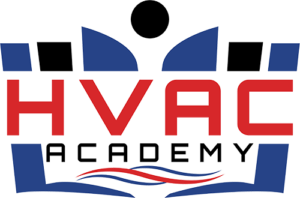The demand for skilled HVAC (Heating, Ventilation, and Air Conditioning) technicians continues to grow, offering lucrative career opportunities. However, to excel in this field, it’s essential to choose the right HVAC certification and training program. With many programs available, making an informed decision will ensure you develop the skills needed for success. This article will guide you through key factors to consider when selecting the best HVAC certification and training program.
Why HVAC Certification and Training Matter
Proper certification and hands-on training give you a competitive edge in the HVAC job market. Employers prioritize certified professionals because they demonstrate:
- Mastery of industry standards.
- Compliance with safety protocols.
- Up-to-date knowledge of HVAC systems and technology.
Moreover, specific certifications, such as EPA 608, are required by law for handling refrigerants.
Key Factors to Consider When Choosing an HVAC Program
1. Accreditation and Reputation
Look for programs accredited by recognized organizations, such as:
- HVAC Excellence
- PAHRA (Partnership for Air-Conditioning, Heating, Refrigeration Accreditation)
- NATE (North American Technician Excellence)
Accreditation ensures the program meets industry standards, giving you confidence that the education and skills you receive are up-to-date.
2. Types of Certification Offered
There are various HVAC certifications to consider depending on your career goals. Make sure the program offers training in key certifications, including:
- EPA 608 Certification: Required for handling refrigerants safely.
- NATE Certification: Demonstrates broad technical knowledge and expertise.
- HVAC Excellence Certifications: Validates knowledge across multiple HVAC areas.
Some programs may also offer advanced courses focusing on commercial HVAC systems or green technologies.
3. Hands-On Training Opportunities
HVAC work is highly practical, so hands-on training is crucial. Look for programs that offer:
- Lab sessions with real HVAC equipment.
- Internship or apprenticeship opportunities with HVAC companies.
- Simulated troubleshooting exercises to develop problem-solving skills.
The more hands-on experience you gain, the better prepared you’ll be to handle real-world challenges.
4. Program Duration and Flexibility
HVAC programs can range from a few months to two years. When selecting the best option, consider:
- Your timeline: Do you need a fast-track program, or can you commit to a longer one?
- Flexible schedules: Are evening or weekend classes available if you have other commitments?
- Online courses: Some programs offer hybrid options where theory is taught online, while practical components are conducted in person.
Choose a program that fits your schedule and learning preferences.
5. Tuition Costs and Financial Aid Options
HVAC training programs vary widely in cost. It’s essential to:
- Compare tuition fees across different schools or programs.
- Check for financial aid options, such as scholarships, grants, or employer-sponsored tuition assistance.
- Ask whether the program offers job placement services to help you secure employment after completing your training.
Investing in the right program can lead to higher earning potential, but it’s essential to balance quality with affordability.
Additional Considerations
Location
If you prefer in-person classes, choose a program located near you or in an area with a high demand for HVAC technicians to increase job opportunities after graduation.
Post-Graduation Support
Some programs offer job placement services or career counseling, helping you transition smoothly from training to employment.
Specialization Opportunities
If you’re interested in specific areas like green HVAC technology or commercial systems, look for programs that offer advanced courses or certifications in those areas.
Choosing the right HVAC certification and training program is a critical step toward a successful career in the industry. Focus on accredited programs, hands-on training, and relevant certifications that align with your career goals. Consider flexibility, costs, and location to find a program that suits your needs. With the right education and skills, you’ll be well-equipped to excel in the growing HVAC field.
Register for our HVAC Technician Training Program for a brighter future ahead. Contact us.



Leave A Comment